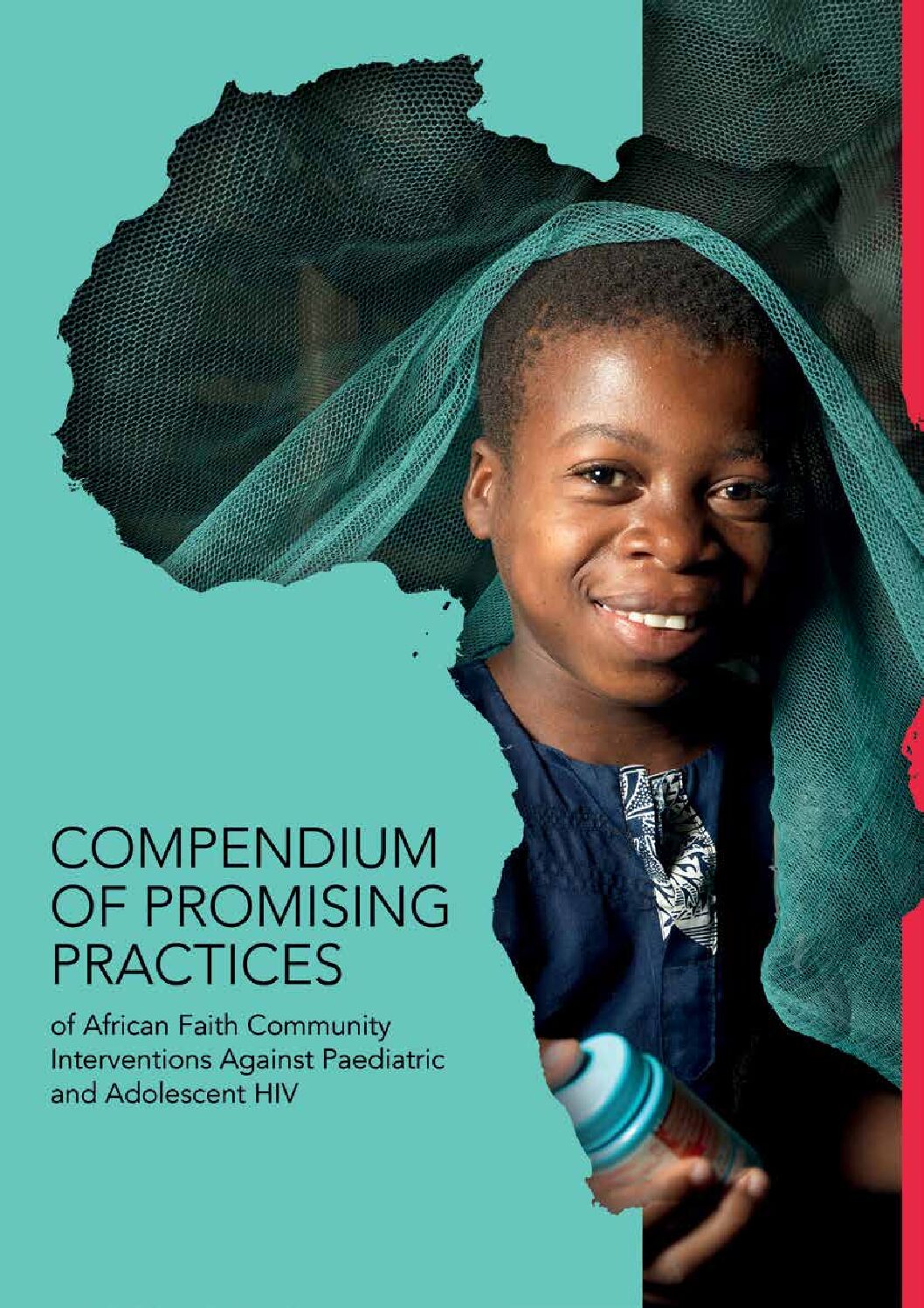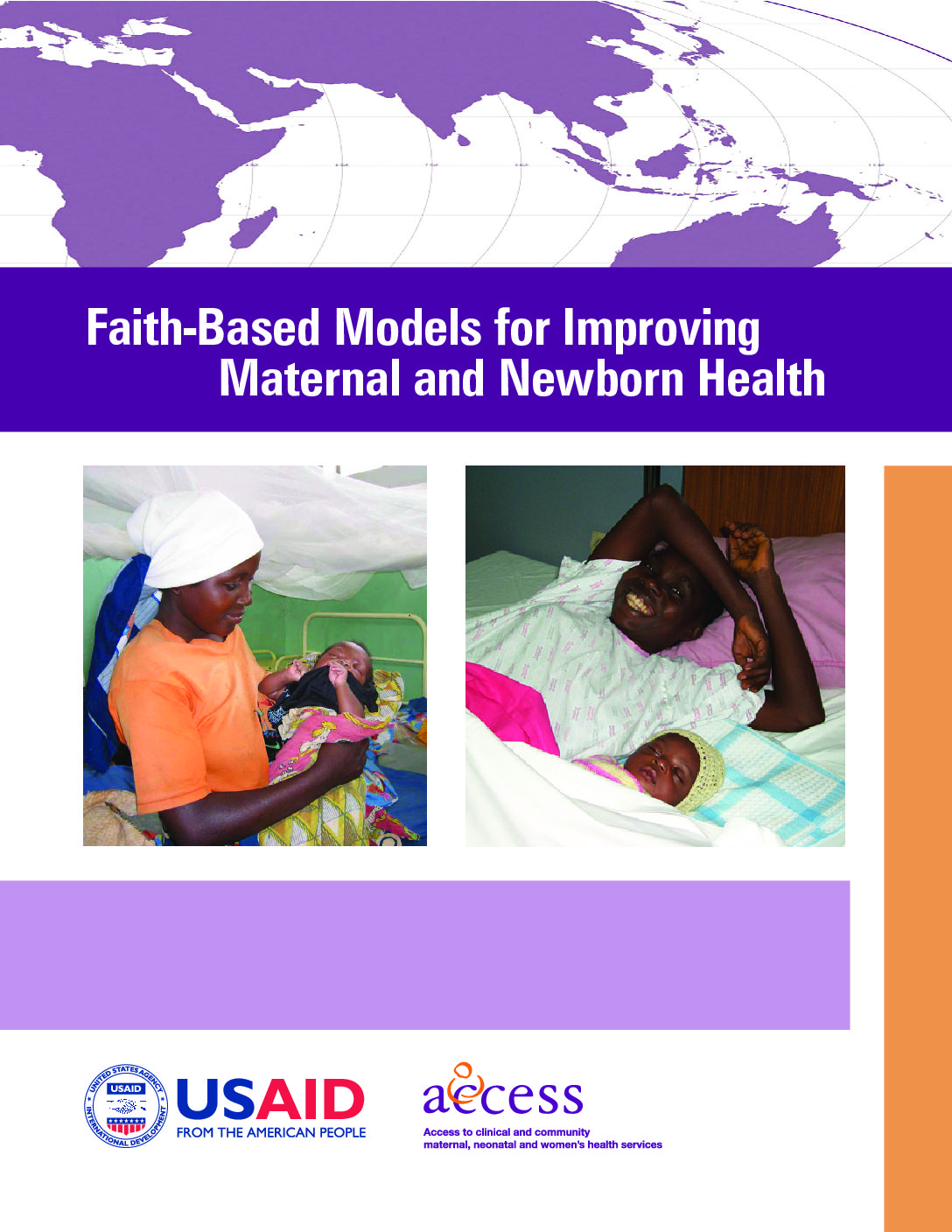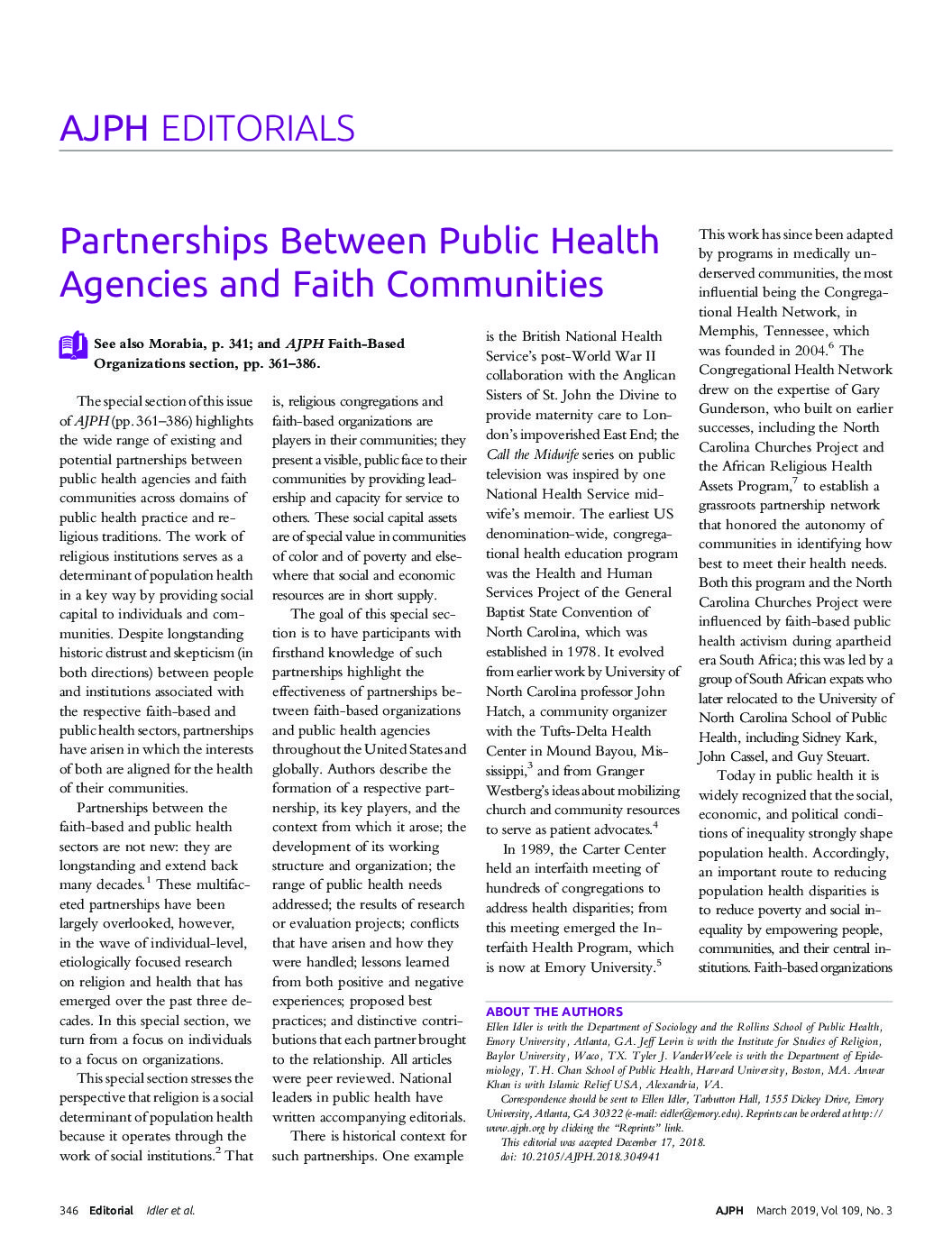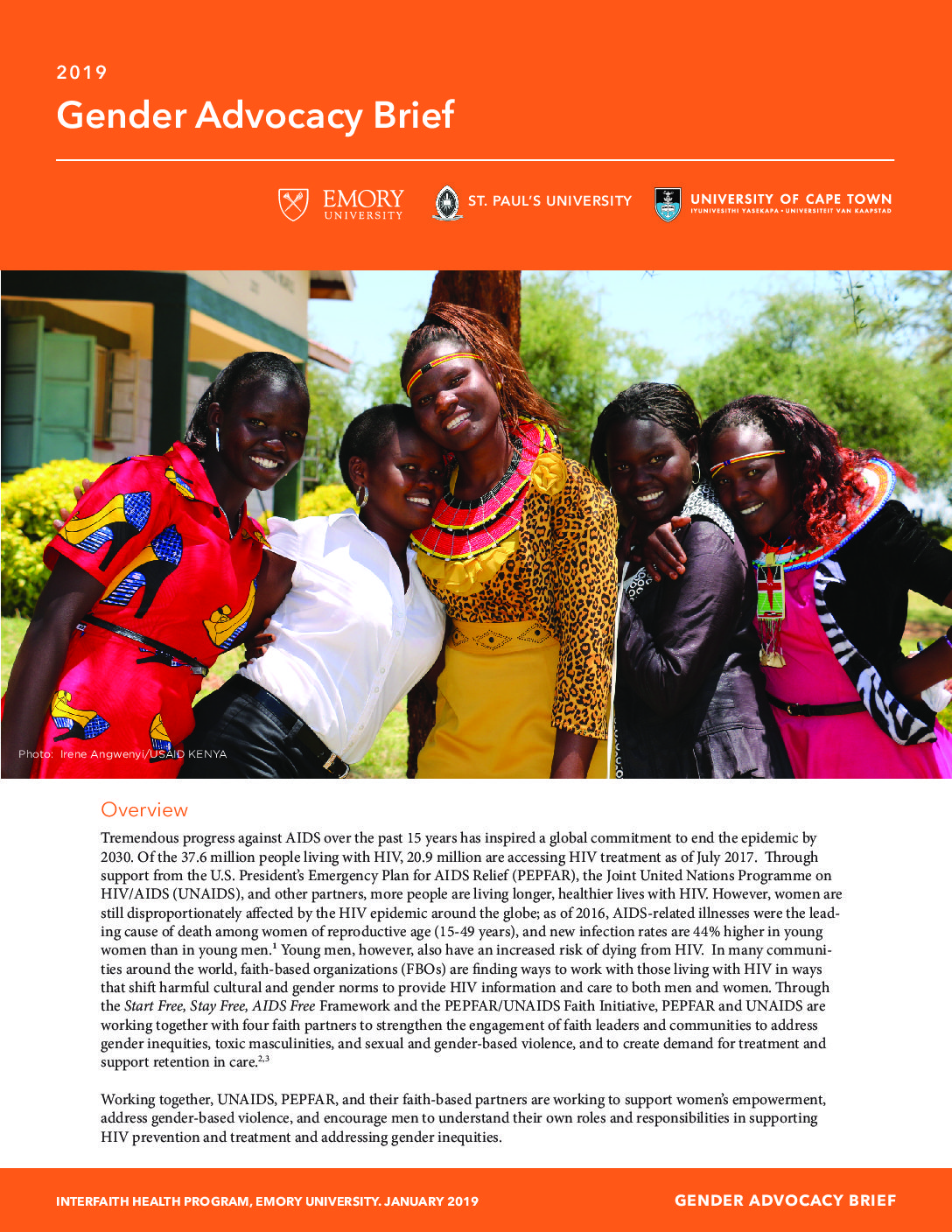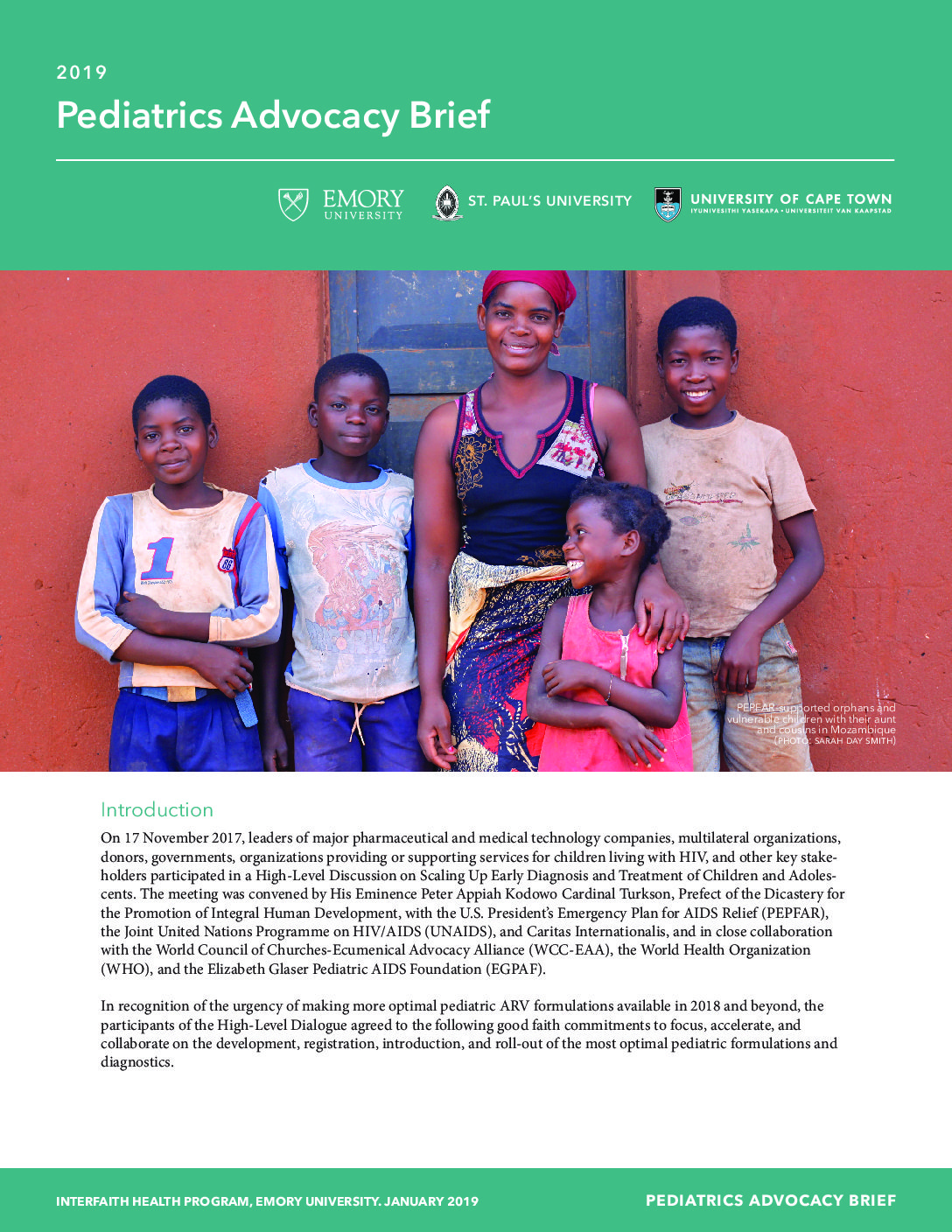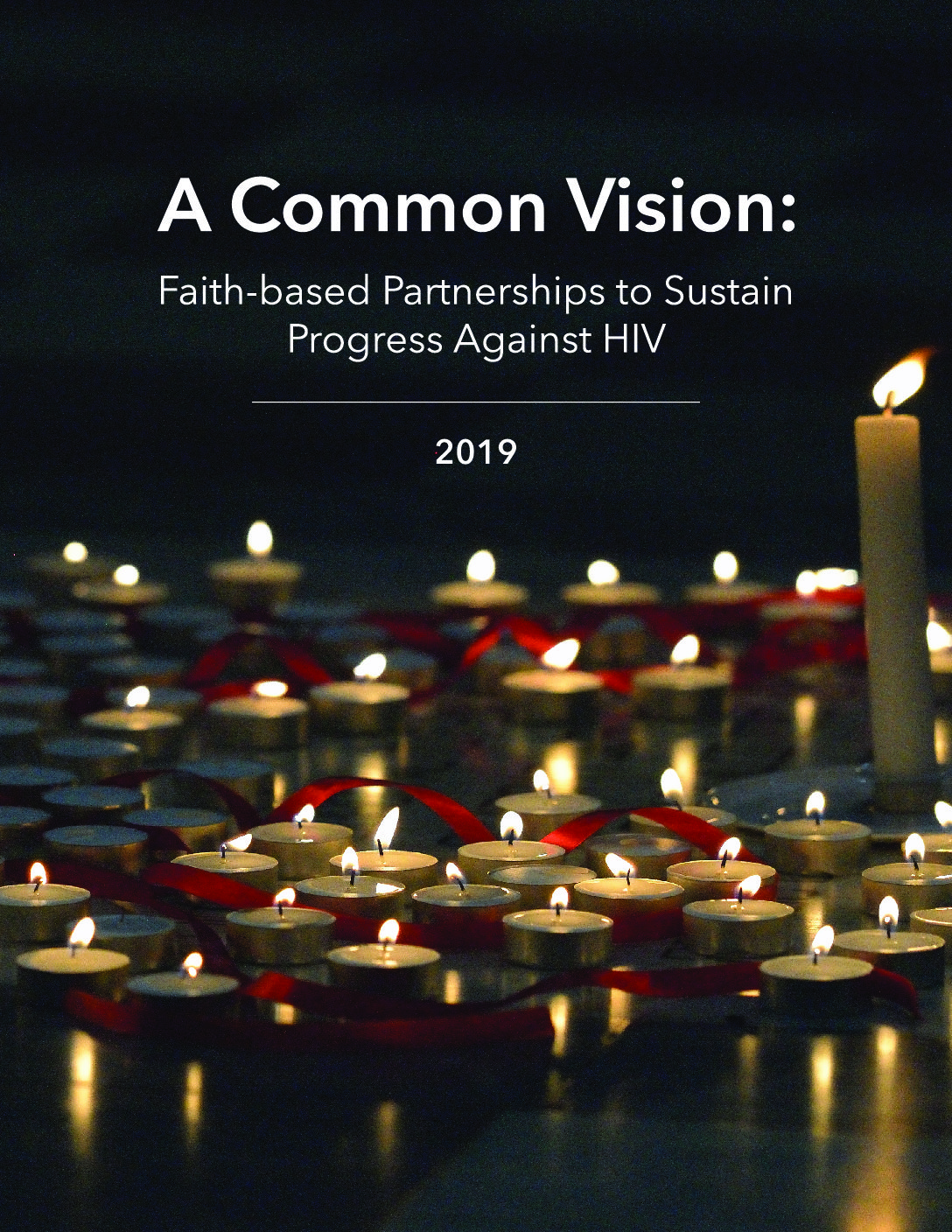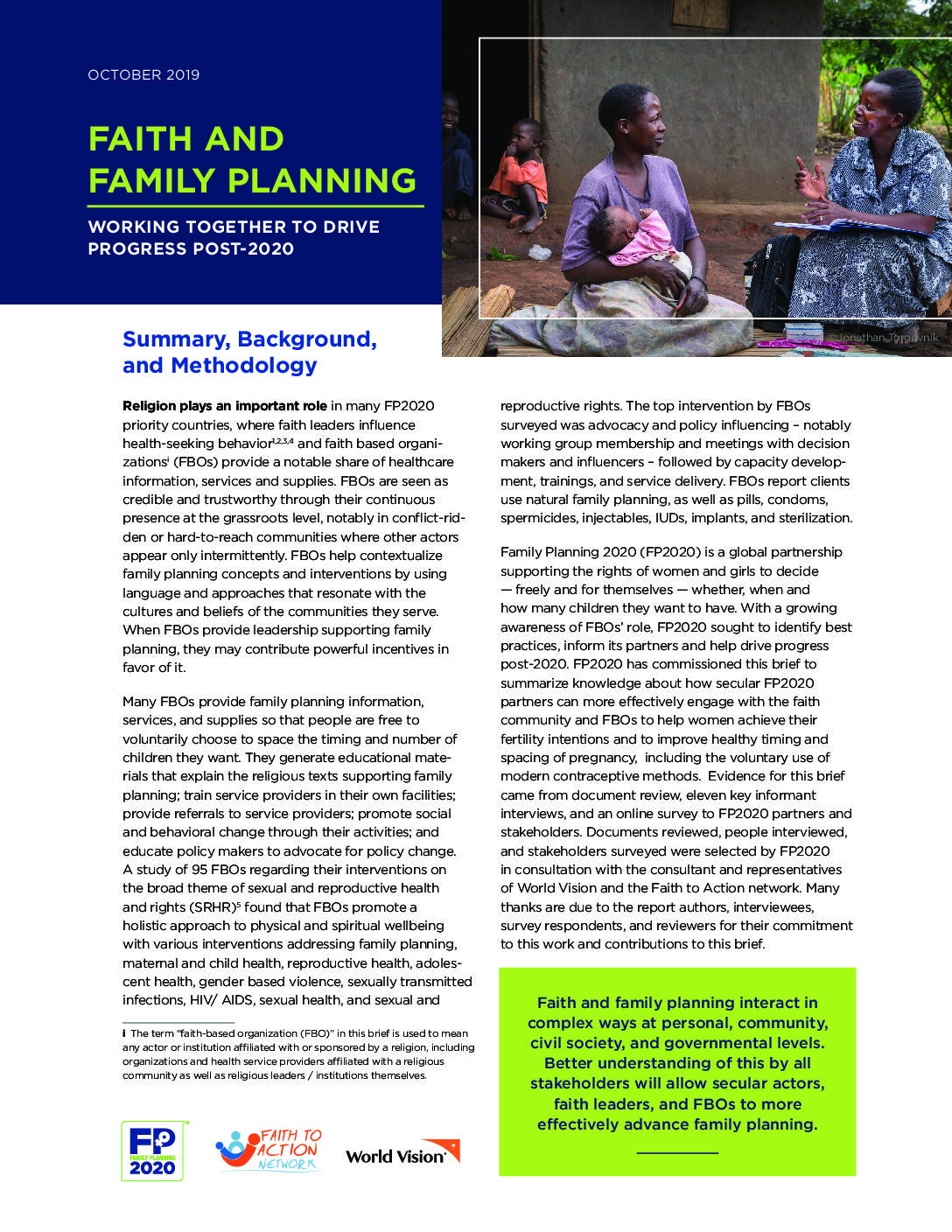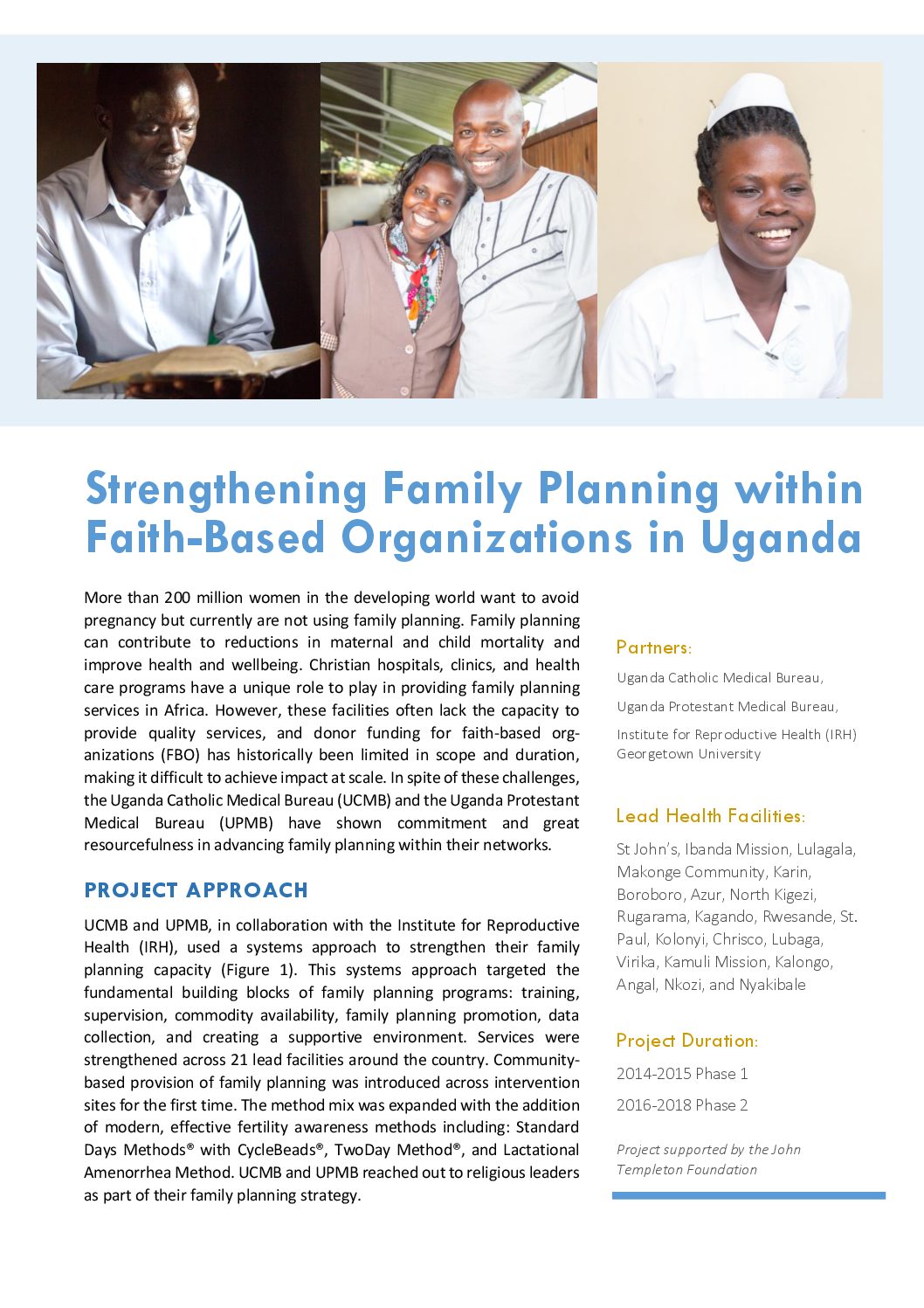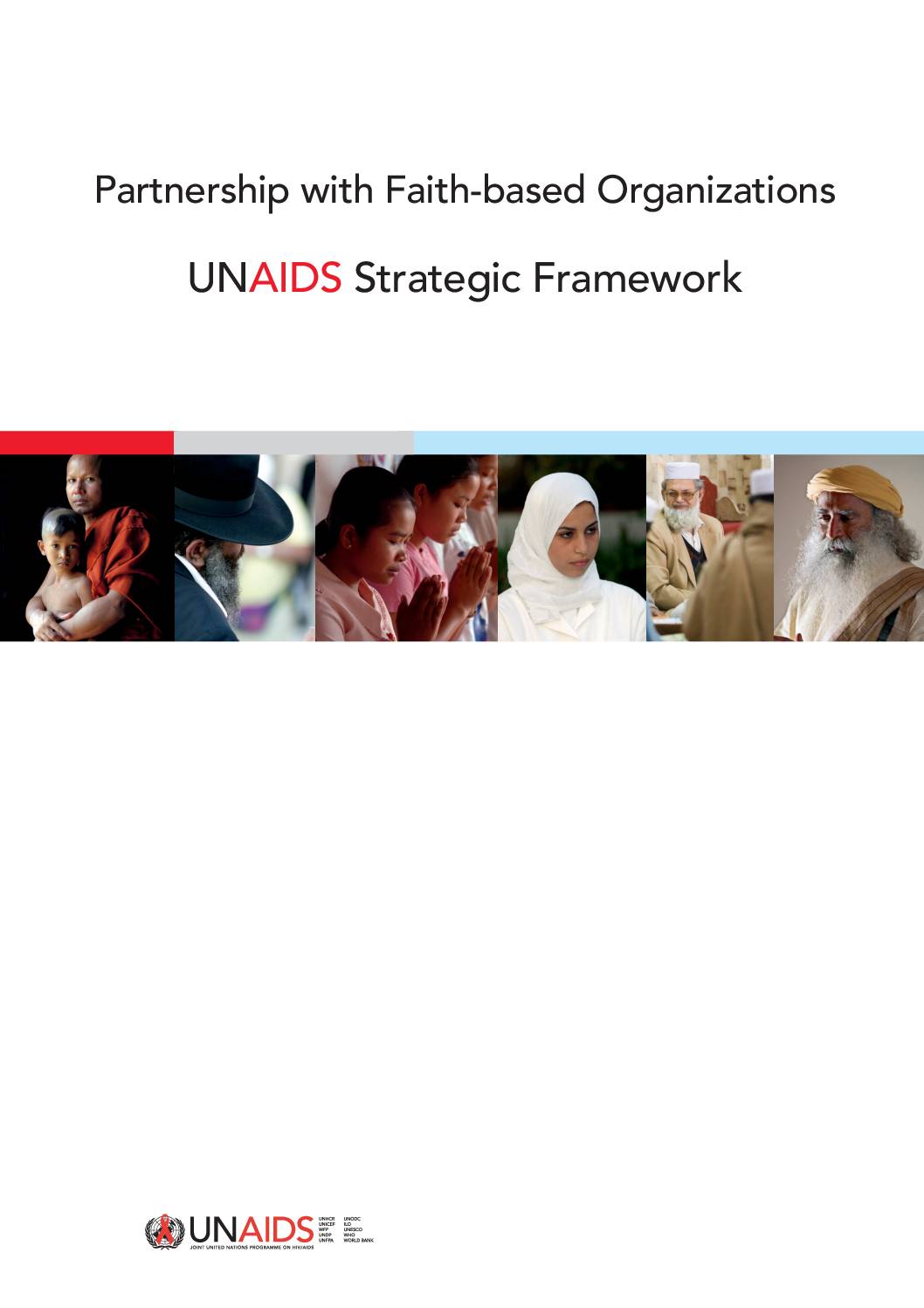Faith-based organizations (FBOs) play a crucial role in increasing access to maternal and newborn health (MNH) services worldwide. In developing countries, faith-based health care facilities provide a significant percent- age of health care services. With networks that reach even the…
Published: 2019
Author:Sarla Chand & Jacqui Patterson
The special section of this issue of AJPH (pp. 361–386) highlights the wide range of existing and potential partnerships between public health agencies and faith communities across domains of public health practice and religious traditions. The work of religious institutions serves as…
Published: 2019
Author:Ellen Idler, Jeff Levin,Tyler J. VanderWeele, & Anwar Khan
Tremendous progress against AIDS over the past 15 years has inspired a global commitment to end the epidemic by 2030. Of the 37.6 million people living with HIV, 20.9 million are accessing HIV treatment as of July 2017. Through support…
Published: 2019
Author:Interfaith Health Program-Emory University
Religiously-motivated stigma regarding HIV may lead to denial and discrimination, preventing children and adolescents from receiving the critical care they need. Without treatment, HIV progresses rapidly and is often fatal in infants and children – almost 75% of untreated, HIV-infected…
Published: 2019
Author:Interfaith Health Program, Emory University
The U.S. President's Emergency Plan for AIDS Relief (PEPFAR), together with the Joint United Nations Programme on HIV/AIDS (UNAIDS), launched an initiative in 2015 to strengthen collaboration with faith-based partners in response to The Lancet Series on faith-based health care…
Published: 2019
Author:John Blevins & Sally Smith
Religion plays an important role in many FP2020 priority countries, where faith leaders influence health-seeking behavior and faith based organizations (FBOs) provide a notable share of healthcare information, services and supplies. FBOs are seen as credible and trustworthy through their…
Published: 2019
Author:Karen Hoehn
More than 200 million women in the developing world want to avoid pregnancy but currently are not using family planning. Family planning can contribute to reductions in maternal and child mortality and improve health and wellbeing. Christian hospitals, clinics, and…
Published: 2018
Author:Uganda Catholic Medical Bureau, Uganda Protestant Medical Bureau, Institute for Reproductive Health (IRH) Georgetown University
This strategic FBO framework was developed to support and guide work already being undertaken globally, regionally and nationally by a diverse range of committed individuals
and organizations. The UNAIDS–FBO strategic framework is the result of an 18-month consultation process between the UNAIDS Secretariat and Cosponsors, many FBOs, networks
of people living with HIV, government representatives and technical experts during 2008–2009.
Published: 2009
Author:UNAIDS
HOST: jliflc.com
REQUEST: /resources/
QUERY: _topics%5B%5D=1003


